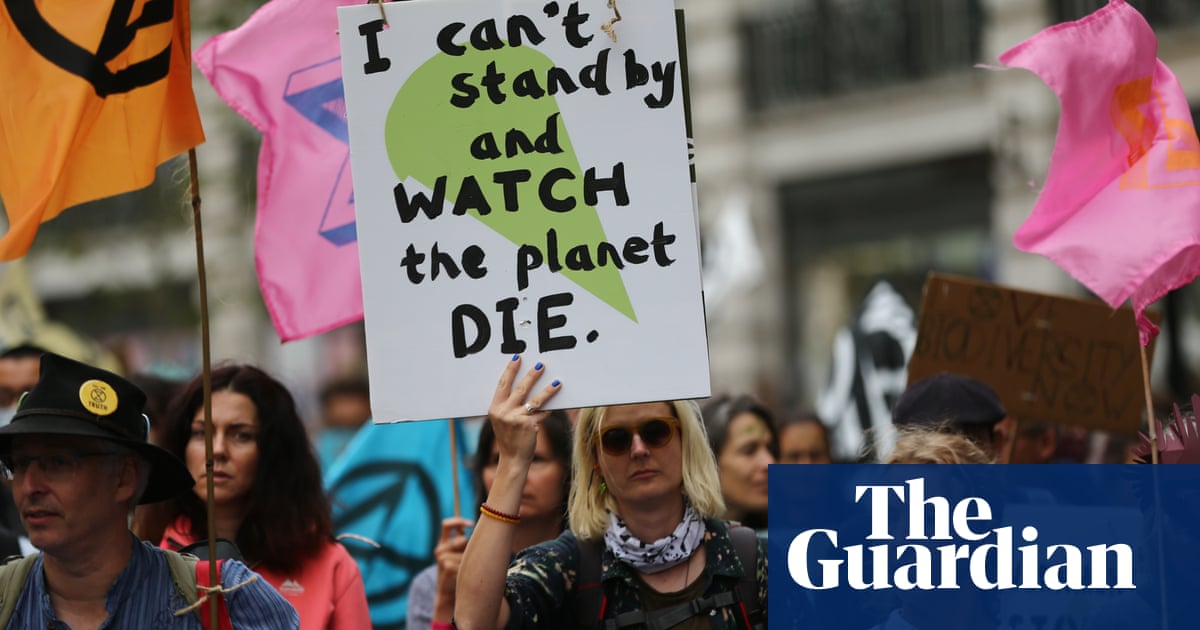
All major world economies, including the countries that make up the G20, are not fulfilling the commitments made with the Paris agreement, to avoid climate catastrophe, according to a new analysis.
Less than two months before major UN climate talks took place in Scotland, none of the largest greenhouse gas emitting countries has made enough plans to reduce pollution to comply with what they agreed to in the agreement. Paris climate change of 2015.
This means that the world is falling into calamitous climate impacts.
Under the Paris agreement, nations promised to prevent the global average temperature from rising 1.5 C above pre-industrial times to prevent disastrous heat waves, floods, storms, droughts and other consequences that are already beginning to unfold. But the new analysis, made by Climate Action Tracker, finds that almost all countries are not meeting this commitment.
Climate promises made by Russia, Iran and Saudi Arabia are “critically insufficient,” according to the analysis, while Australia, Brazil, Canada, China and India are among those considered. ” highly insufficient “.
The United States, the European Union bloc, Germany and Japan are classified as “insufficient”, while the United Kingdom, host of the next climate summit, is “almost enough”.
Of the 36 countries, plus the EU, classified by the Climate Action Tracker, only The Gambia has made commitments in line with the Paris 1.5C target. Combined, these countries account for 80% of global emissions.
Governments should periodically improve their emission reduction targets to deliver on promises made in Paris, but progress has “stalled” this year, the researchers said.
There was a “good boost” in May after a climate summit held at the White House by U.S. President Joe Biden, according to Niklas Höhne, a researcher at the NewClimate Institute, a Climate Tracker analysis partner organization.
“But since then, there has been little or no improvement: nothing moves,” he said. “Now the governments have closed the gap to 15%, a minimal improvement since May.
“Anyone would think they have all the time in the world, when in fact it’s the opposite,” he added.
This intransigence comes despite imminent climate talks and growing signs of the climate crisis manifesting in catastrophic weather events, including massive floods in Germany and China, heavy forest fires in the United States and dangerous heat waves spreading across several countries.
A survey conducted by Pew on Tuesday of 16,000 people across North America, Europe and Asia found that 72% were concerned that climate change would personally harm them at some point.
In August, a relevant report from the Intergovernmental Panel on Climate Change, the world’s leading authority on climate science, found that burning fossil fuels is changing the Earth’s climate in “unprecedented” ways and that cuts are needed. rapid greenhouse gases to prevent climate breakdown.
UN Secretary-General António Guterres said the report should act as “a red code for humanity.”
But the Climate Action Tracker found a lack of urgency on the part of all major broadcasters, such as China, India and the United States, to respond to this threat.
Even countries with strong climate goals are not on track to meet them, while international funding for the poorest countries to help deal with the climate crisis falls short. If current practices continue, the world is on its way for almost 3 ° C in warming.
The so-called “particularly worrying” analysis is the governments of Australia, Brazil, Indonesia and Russia, which have failed to raise the ambition of their emissions cuts since 2015.
According to the report, coal, the most polluting fossil fuel, is still being developed on a large scale by India and China, while gas infrastructure is being expanded in Australia and the EU.
“A growing number of people around the world are suffering from increasingly severe and frequent impacts of climate change, although government action continues to lag behind,” said Bill Hare, chief executive of Climate Analytics, another partner of the new studio. .
“While many governments have committed to net zero, without short-term action achieving net zero is virtually impossible.”
The analysis provides a check on the startling reality ahead of the UN climate talks, which have been pushed back since last year due to the Covid-19 pandemic. A coalition of 1,000 environmental groups has called for talks to be postponed again because delegates from poorer countries do not yet have access to coronavirus vaccines.
That call has been rejected by both the British government and John Kerry, the U.S. climate envoy, who said Monday that another delay would be a “huge, huge mistake.”
But Kerry runs the risk of entering into talks without a major climate victory, as emission reduction provisions as part of a huge $ 3.5 million piece of the legislative agenda. Biden are still a source of disagreement, even among Democrats in the U.S. Congress.
Environmentalists have also attacked the Biden administration for recently leasing large areas of the western United States and the Gulf of Mexico for oil and gas drilling.
Leases “make it even harder for the United States to meet its climate goals,” said Jennifer Rokala, executive director of the conservation group at the Center for Western Priorities.
“Vision is nothing without action. Unfortunately, the Biden administration’s actions to increase drilling on public lands are at odds with the president’s view, ”he added.